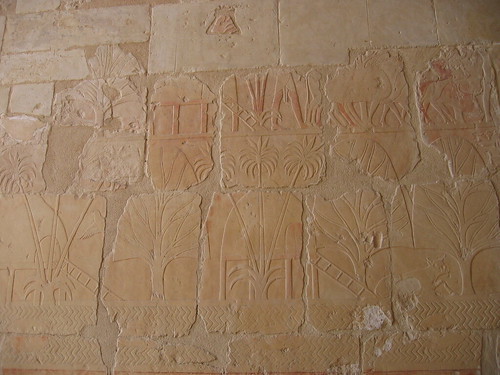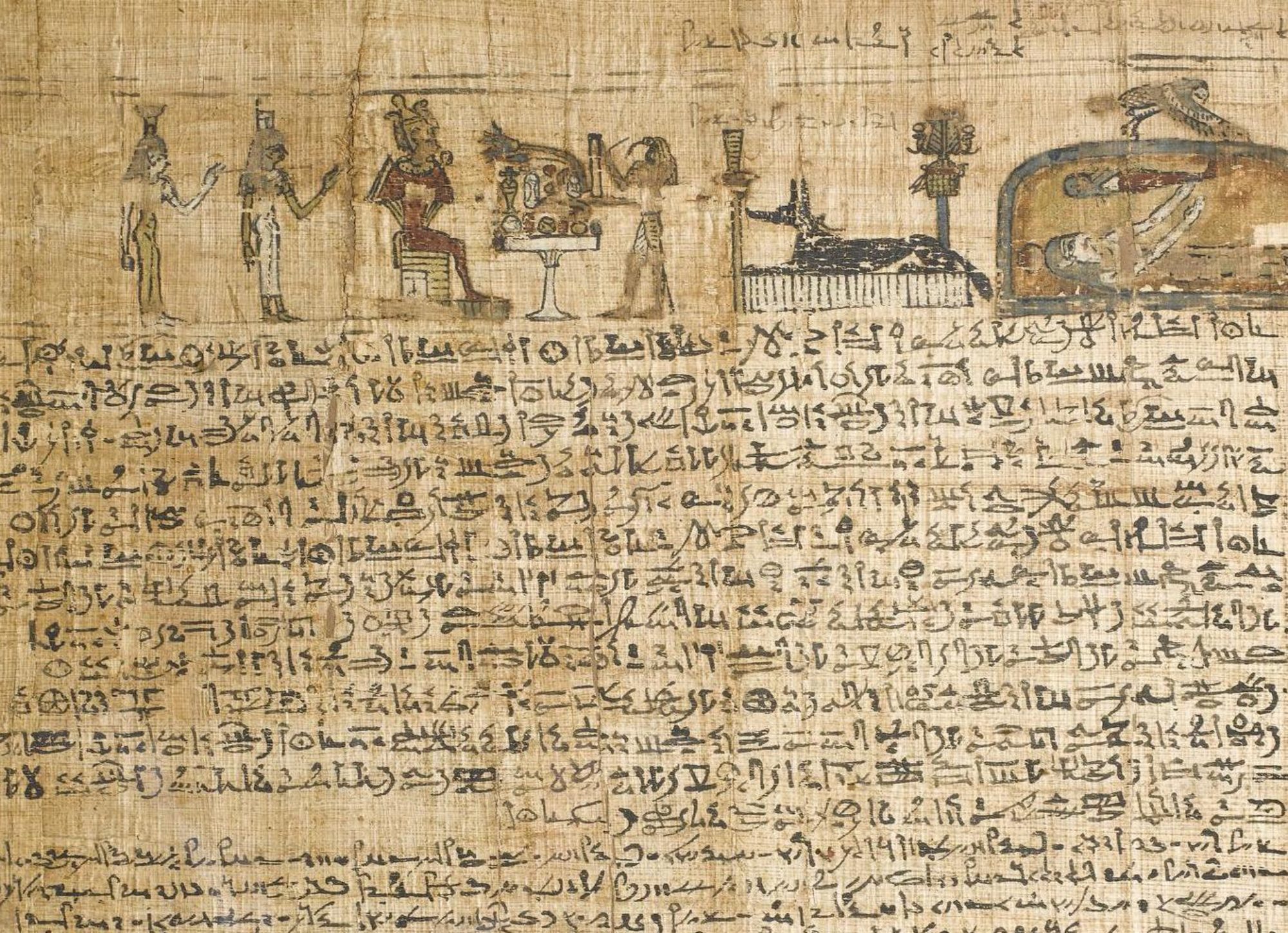I’ve decided that it might be interesting to share some of my favourite Egyptian words each week, so that even if you don’t read hieroglyphs, you can enjoy some of the flavour and character of the language that is often lost in translation.
The basis of certain words and the special ways in which they were used can give us key insights into Egyptian culture and the way the people thought. For example, the Egyptians were very keen on puns or play-on-words, which often formed a key symbolic part of religious and political ideology. Also, although hieroglyphs weren’t just simplistic representative pictures, their pictorial form was still significant and often exploited in art and texts. And sometimes it’s not just our understanding of Egyptian culture that can be enlightened by examining Egyptian words—sometimes it’s our own culture as well. Some Egyptian words have made it into modern languages, including English.
I remember learning one of my favourite examples of an Egyptian loan word into English back during my undergraduate degree in Toronto when we read an inscription about Queen Hatshepsut’s trading expedition to the exotic land of Punt (which some argue is modern Eritrea). The word is hbny and you might be able to guess what the English loan word is!
hbny is written like this:
with the phonetic ‘h’ symbol—a walled courtyard, the symbol for ‘b’—a leg, a plow sign that is the phonetic symbol for ‘hb’, the squiggly line depicting water that is the phonetic ‘n’ sign, two dashes representing the sound ‘y’, and a branch symbol acting as a determinative to the word to specify it’s wood-related meaning. hbny is the word for the dark tropical hardwood that we call ‘ebony’. We’ve just simply dropped the ‘h’ sound from the Egyptian word.
The word was borrowed by the Greeks and entered into English. So whenever you say ‘ebony’, bear in mind that you’re speaking ancient Egyptian!
Some examples of the word’s use in Egyptian texts can be found in lists of luxury products from foreign countries, such as in the autobiographical inscription in the rock-cut tomb of the official Harkhuf, describing the products he acquired during his travels:

Here is my translation of the above text transcribed in Sethe 1932, 126: ‘I returned with 300 donkeys, which were laden with incense, ebony, hekenu-oil, sat, moringa oil, panther skins, ivory tusks, throwsticks, and all good products’.
hbny is also used in the Punt expedition text that I mentioned above. A relief from the temple depicting Punt is pictured below:

In the temple of Hatshepsut (the Egyptian queen who ruled as king) at Deir El Bahri, over an image of ships being loaded with the products of Punt, is the inscription:
‘The loading of the ships very heavily with marvels of the country of Punt; all goodly fragrant woods of God’s Land, heaps of myrrh-resin, with fresh myrrh trees, with ebony and pure ivory…Never was brought the like of this for any king who has been since the beginning’ (translation from Breasted 1906-7 vol.2, 263-5).
‘hbny and ivory’. So it turns out that that old Paul McCartney and Stevie Wonder lyric is actually over three thousand years old!

This is great. For a while now I’ve been flicking through a book on middle Egyptian every time I go to Waterstones, and a few more installments of this might push me over the edge so I buy it. I might even read it…
Very interesting, I hope you continue!
10 years ago, a friend of mine was in London and bought for me the Gardiner’s grammar.
I tried to learn hieroglyphics, but at the fourth lesson I was defeath: too hard for me, because I don’t know Latin, Greek, Aramaic, Coptic and……English!
I’m italian and I sadly forgot also Italian grammar; in italian ebony is “ebano” and ivory is “avorio”: I don’t know if the root il Greek or Latin; I studied technical matters and I have a degree in chemistry, so I have admiration for people able to read ancient texts.
I’ve also read that the word ‘ivory’ is actually derived from Egyptian too! Apparently it comes from the word for elephant, which was abu or ibu, but when the word became Coptic, the b changed into a v (I think this is because of Greek influence, their letter ‘beta’ is actually a v, not a b, though this is in modern Greek, not sure about ancient Greek) and so the word was pronounced ‘ivu’ or something like that. This eventually entered English as ivory. So yes, that song lyric really is quite ancient! 🙂
I’d be interested to know what other words from the Egyptian language have made it into English.
I’ve heard a lot of claims that ‘alchemy’ is one of them but I’m not sure about that. I’ve read that ‘desert’ is not one of those words loaned from Egyptian, despite ‘deshret’ meaning essentially the same thing as ‘desert’. I thought it was from the Egyptian word for the red land, but it’s apparently a linguistic red herring, the word ‘desert’ is from Latin which didn’t come via Egyptian…
Izzy,
For an overview of ancient Egyptian words that
survive in English, see
http://www.geocities.com/TimesSquare/Alley/4482/AEloans.html
Not sure if URLs survive the form.
Hi Margaret
This is a great exercise. I hope you keep it going. I did a lot of work on learning hieroglyphs several years ago and while some words stay with me, many get lost if I’m not reading them constantly. Every time I go to Egypt I’m having to re-learn hieroglyphs. What I need is a daily reminder!!
Thankyou and keep up the good work.